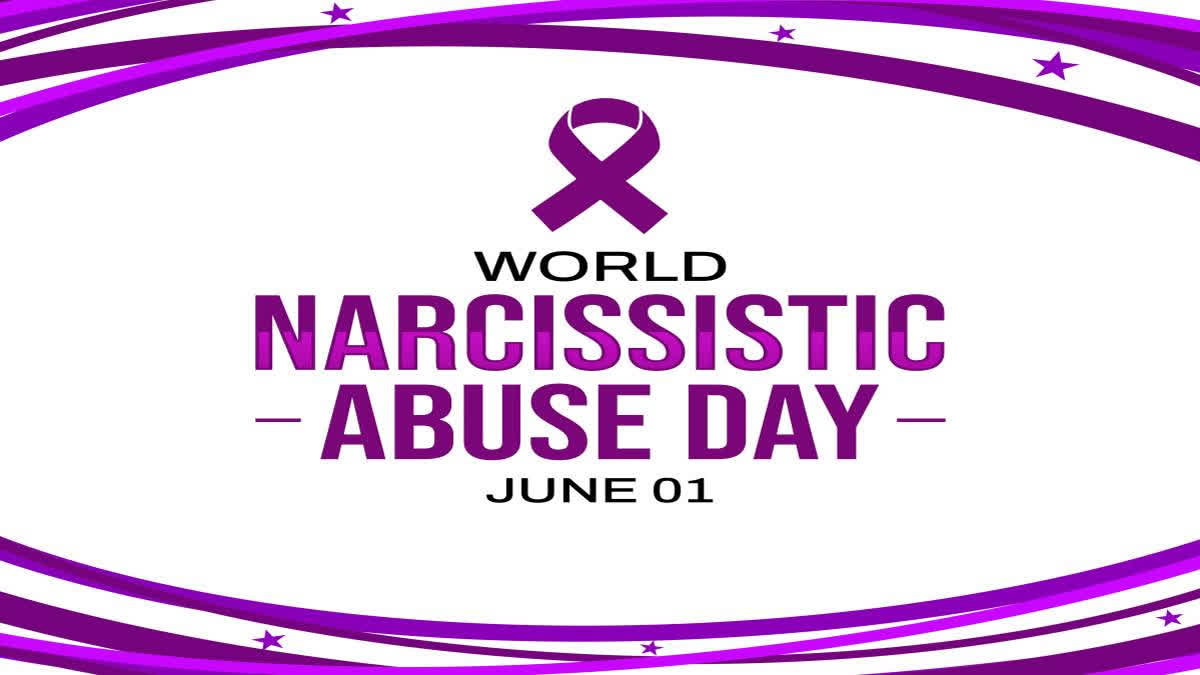New Delhi: World Narcissistic Abuse Awareness Day (WNAAD) is observed annually on June 1 to highlight and raise awareness about narcissistic abuse, a form of emotional and psychological abuse inflicted by individuals with narcissistic traits or personality disorders.
The day was established in 2016 by Bree Bonchay, a psychotherapist dedicated to helping individuals recover from toxic relationships and complex trauma.
The mission of WNAAD is to educate the public about the signs and effects of narcissistic abuse, provide resources for survivors, and foster a supportive community. Activities on this day include spreading awareness through social media campaigns using the hashtag #IfMyWoundsWereVisible, attending the annual Healing the Invisible Wounds Summit, and sharing personal stories to empower survivors and educate others.
Significance of the World Narcissistic Abuse Awareness Day
WNAAD holds immense significance at a time when numerous cases of narcissistic abuse have come to the forefront. It is perhaps seen as one of the major factors of an unhealthy relationship. Narcissistic abuse often leads to bad breakups, failed marriages and toxic relationships.
Raising Awareness: The day shines a light on narcissistic abuse, a form of psychological and emotional abuse often misunderstood and overlooked. It helps to educate the public about the characteristics and impacts of narcissistic abuse, which can be subtle and insidious.
Empowering Survivors: WNAAD provides a platform for survivors to share their stories, find support, and connect with others who have had similar experiences. This can be a crucial step in their healing process, offering validation and community support.
Promoting Education and Prevention: The day encourages educational initiatives to help people recognise the signs of narcissistic abuse, understand its effects, and learn strategies for prevention and recovery. This can lead to better mental health outcomes and a reduction in the prevalence of such abuse.
Advocating for Policy Change: By raising awareness and educating the public and policymakers about the effects of narcissistic abuse, WNAAD can contribute to changes in laws and policies that protect victims and hold abusers accountable.
Encouraging Research: Increased awareness can spur more research into narcissistic abuse, its effects, and effective treatments. This can lead to better support systems and therapeutic approaches for survivors. World Narcissistic Abuse Awareness Day is crucial for bringing visibility to an often-hidden form of abuse, supporting survivors, and fostering a broader understanding and response to the issue.
What makes narcissistic abuse different from other forms of abuse?
Narcissistic abusers often engage in gaslighting, a form of psychological manipulation where the abuser makes the victim doubt their reality, memory, or perceptions. This can severely undermine the victim's sense of self and reality, leading to confusion and self-doubt.
Narcissistic abusers typically employ tactics aimed at eroding the victim's self-esteem and self-worth. They may use criticism, devaluation, and belittlement to make the victim feel inferior and dependent on the abuser's approval and validation.
Such kind of abuse often involves a cycle of idealisation, devaluation, and discard. The abuser may shower the victim with affection and praise before suddenly becoming critical and abusive, followed by periods of emotional withdrawal. This unpredictable pattern keeps the victim off-balance and seeking the abuser's approval.
Narcissistic abusers often seek to exploit and control their victims for their gain. This can include financial exploitation, emotional manipulation, and using the victim as a means to bolster the abuser's ego and sense of superiority. A defining characteristic of narcissistic individuals is a profound lack of empathy.
This means they are unable to genuinely understand or care about the feelings and needs of others, which allows them to inflict harm without remorse. Lastly, Narcissistic abusers are often highly concerned with their public image and may present themselves as charming, successful, and benevolent to outsiders, while their abusive behaviour is reserved for private interactions with the victim. This can make it difficult for victims to seek support or be believed by others.



